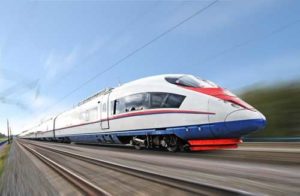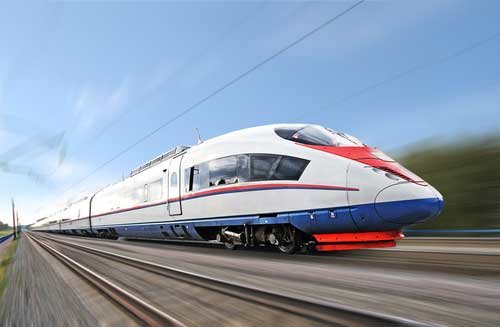 Thailand puts high-speed rail project on track with land pledge
Thailand puts high-speed rail project on track with land pledge
CP Group consortium promised all plots needed for construction within four years
Thailand finally reached an agreement for construction of a high-speed rail line linking three airports serving Bangkok, after making a unusual pledge to secure all land for the builders in a timely fashion.
A consortium led by Charoen Pokphand Group, Thailand’s biggest conglomerate, signed a contract with the State Railway of Thailand in fall 2019 to build the line linking Suvarnabhumi, Don Mueang International and U-Tapao International airports. The route, expected to reduce travel time to one hour, is due to partially open in 2023.
Prime Minister Prayuth Chan-ocha smiled and clapped at the signing ceremony, where he was next to CP Group CEO Suphachai Chearavanont. But the negotiations that produced the agreement for the 224.5 billion baht ($7.39 billion) project were far less chummy.
CP’s consortium won an intense competition against BTS Group Holdings, an urban railway operator, for the priority right to negotiate with the SRT. But a final deal was postponed repeatedly.
The agreement came only after a frustrated Deputy Prime Minister Anutin Charnvirakul, who oversees the project, said all members of the consortium would be blacklisted from competing for future government projects unless they reached a deal.
The consortium’s reluctance centered on concerns over the need to expropriate land. The SRT lacks ownership over about 30% of the plots involved in the construction, including those for gas and oil transportation pipes. The government stressed that all lots could be cleared at any cost, but it had yet to show how.
Many high-speed transit projects in Southeast Asia have suffered delays or cancellation due to difficulties in securing land. The consortium, which was obliged to finance nearly half of the project, viewed a guarantee by the Thai government to hand over all lots as crucial.
Dhanin Chearavanont, senior chairman of CP Group, in October called for the government to share responsibilities and risks with the consortium.
Thailand made the pledge to turn over all land on time, in part by proposing a cross-ministerial committee to promote the expropriation process and deliver all lots no more than four years after signing the contract. CP’s consortium withdrew its demand for the delivery all plots before launching the project.
The government guarantee is the first of its kind offered to private companies that win orders for a public project, people familiar with the matter say.
At the signing ceremony, Suphachai wore a wry grin as he noted that the negotiations were extremely difficult.
But concerns will remain even once the rail line opens.
CP Group, which engages primarily in food and retail, lacks expertise in railway management. Railway operator Bangkok Expressway and Metro belongs to the consortium but brings no experience managing a high-speed transit system.
The consortium is expected to receive support from Ferrovie dello Stato Italiane, holder of Italy’s national railway, in operating the line. But a railway industry official said an “ungodly” amount of money will be needed to cover labor, educational and other expenses.
The new rail line represents a core infrastructure development project for Thailand’s Eastern Economic Corridor program to establish an advanced industrial zone, as Prayuth works to pull Thailand out of the middle-income trap.
Source: https://asia.nikkei.com/Business/Transportation/Thailand-puts-high-speed-rail-project-on-track-with-land-pledge
